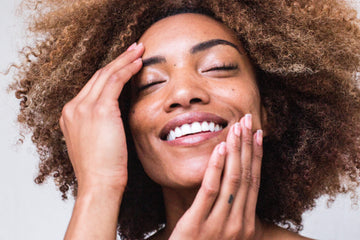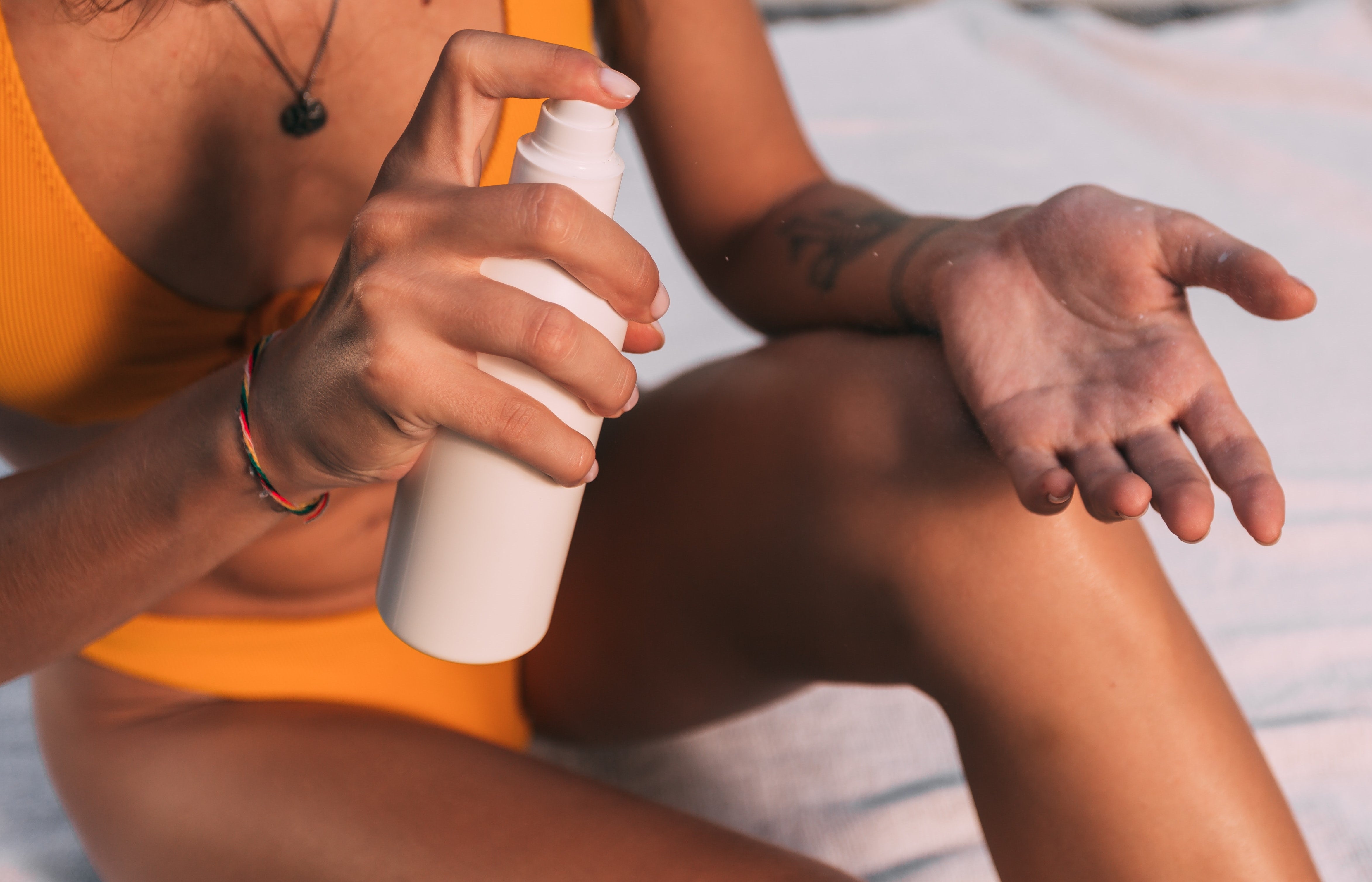
Are black people free from the fear of sunburn? Not really. The truth is that sunburn on black skin are worse for Afro people. Why is that?
Well, the facts are that skin with more melanin is more prone to damage from the sun. Don't buy it? Let's dive into it!
Table of Contents
Can Black People Get Sunburned?
What is sunburn?
Sunburn is damage caused by exposure to extreme heat from the sun. This is a temporary form of skin damage with easy-to-see symptoms. Redness, peeling, and patchy, uneven skin tone is an inflammatory response in the skin's outermost layer to ultraviolet (UV) light damage. Severe sunburn can cause severe burning pain and requires immediate special care.
Human skin has melanin - a pigment that gives skin color and protects it from the sun's rays. Melanin works by darkening the skin when exposed to the sun. The amount of melanin produced depends on genetics. Black people have higher levels of melanin than yellow or white people.

Photo by Mikhail Nilov from Pexels
When the skin is overexposed to UV radiation, the immune system increases blood flow to the sunburned area, resulting in dark red skin. The consequences of sunburn can range from mild symptoms to blistering. After a while, the burned dead skin cells will automatically slough off, creating a new layer of young skin that continues to grow normally. This is a sign that your body is trying to get rid of damaged cells on its own. Never try to peel the skin yourself, let it peel off naturally.
Sunburn on black people skin
A mistake that many black people often make is assuming that dark-skinned people don't get sunburned. The fact is any skin is likely to be affected by the sun. Furthermore, colored people will face more danger when sunburned, just because they subjectively do not pay attention to the signs of sunburn to take timely remedial measures.
Dark-skinned people are more likely to have natural skin protection than whites when exposed to high UV intensity, but they can still experience peeling sunburn and the risk of dying from skin cancer.

Photo by Philip Warp from Pexels
Dark-skinned people have natural skin protection levels that range from SPF 4 to 13, but that doesn't mean they'll never get sunburned. If exposed to the sun for a long time, black people can get a more severe and painful sunburn than white people. The danger is that dark-skinned people do not know their skin is sunburned so that they can take timely measures. As a result, skin damage will accumulate from multiple sunburns and lead to unpredictable consequences.
Causes of sunburn

Photo by Leighann Blackwood on Unsplash
The main cause of sunburn is not properly covering and protecting the skin, leading to the exposed body part when exposed to light will be affected by the impact of ultraviolet rays. In sunlight, there are two main types of ultraviolet rays, UVA and UVB, both of which have different negative effects on the skin leading to many consequences such as:
- UVA rays: these are radiation with long wavelengths (from 320 nm to 400 nm) and account for the majority of UV rays reaching the skin (about 95%). This ray can penetrate the epidermis of the skin, directly affecting the underlying structure of the skin, reducing collagen and elastin, thereby leading to skin aging, melasma, and serious skin damage.
- UVB rays: these are radiation with short wavelengths (from 290nm to 320nm), although UVB rays are not many and cannot penetrate the skin, they are also the main cause of sunburn and discoloration. skin cancer and skin cancer.
The Risk of Sunburn on Black Skin
If people with dark skin are naturally able to protect themselves against sun damage, then why, according to published studies, do they still get sunburned? Most black people believe that their skin is already dark, if there is a sunburn or darker tan, there will not be much change, so they do not take measures to protect their skin against sun damage.
Sunburn that happens to anyone, regardless of skin color, is a serious problem. When you get a sunburn, the skin begins to peel, literally the skin cells burn to death, which in science is apoptosis. This process indicates that the immune system is killing skin cells with DNA damaged by the sun.
The data provided in the report from 2002 to 2011 shows that the rate of skin cancer in the United States has increased rapidly and has become the most common cancer in this country. The rise in cases of melanoma, the deadliest form of skin cancer, is also skyrocketing. As reported by the American Cancer Society, melanoma arises from the pigment cells melanocytes.

Photo by Tima Miroshnichenko from Pexels
Tumors can appear on the hands, soles, and under the toenails in African-Americans, accounting for more than 50% of melanoma cases. In addition, black people are more likely to die from melanoma than white people. When skin cancer is diagnosed in a person with dark skin, it is more advanced. As a result, only about 69% of people survive 5 years, with whites this number reaches 93%. In addition to some genetic factors, African-Americans with certain medical conditions, such as high blood pressure and diabetes, are also at increased risk for sunburn, because the drugs used to treat these conditions increase the severity of skin's sensitivity to sunlight.
People of color are often at a higher risk of dying from melanoma because they are not diagnosed and treated promptly. The reason may be because of difficult health policy or they do not have the conditions to go for regular check-ups to detect diseases. There are even many cases where people of color are still misdiagnosed despite going to the doctor regularly because the doctors themselves think that they have a lower risk of skin cancer than white people.
How Can You Deal with Sunburn on Black Skin?
Sunburn Prevention on Black Skin
The most effective measures to prevent sunburn are to limit the skin's exposure to sunlight. You can utilize thick, breathable, and spacious sun protection clothing, do not skip a hat or sunglasses to protect your face and eyes. In addition, don’t forget to apply good quality sunscreen, broad-spectrum protection, and high SPF, PA. In the meantime, keep in mind to add enough water, actively use fruit juices rich in Vitamins A, E, C to enhance resistance in general. If you must use drugs or cosmetics that can increase the skin's light sensitivity, you should consult your doctor.
Never make an excuse to skip sun protection. Sun exposure in fact may help the body synthesize vitamin D. People may argue that it is necessary to ignore sun protection measures to expose their skin to ultraviolet rays. But this is not a compelling reason because you can completely get vitamin D through your daily diet. Omega 3 fish oils or vitamin D supplements are all convenient options for providing your body with the nutrients it needs, without exposing your skin to the sun.

Photo by RF._.studio from Pexels
Sun protection is not only a method to protect the beauty, the important role of sun protection for health is to prevent sunburn, skin inflammation, and even skin cancer. Especially when the climate is increasingly harsh, the ozone layer that protects the earth is being destroyed, and ultraviolet rays with increasingly stronger intensity are destroying human life.
In addition, to avoid darkening of the skin due to sunburn, you should also limit sun exposure between 10am and 3pm daily. If you must go out at that time, you should equip more clothes, hats and apply sunscreen to cool down and reduce the risk of sunburn for the body.
How to Relieve Sunburn Immediately at Home
Use bathwater

- Take a cool shower to sedative your burning skin.
- Add a cup of apple cider vinegar to your bath to help balance the pH (acid or alkaline) of your skin and promote healing.
- Soak in an oatmeal bath. This is especially helpful for itchy, painful skin.
- Add some lavender or chamomile essential oil to the bath to help ease some of the burning and pain.
- Add 2 cups of baking soda to the bath to help reduce irritation and redness.
- Avoid soaps or perfumes in bath water as these can dry out the skin.
Use essential oils, herbs, and natural products

Photo by Chelsea shapouri on Unsplash
- Use creams containing aloe to soothe and moisturize the skin. Some aloe vera products contain lidocaine, an anesthetic that helps relieve pain from sunburn.
- Apply essential oils like lavender or chamomile on your skin. You can apply a small amount to your skin to soothe a sunburn.
- Use freshly brewed tea and wait for it to cool, then apply it to the sunburned area with a clean cloth. The tannic acid in the black tea helps reduce heat from sunburned skin and aid in restoring pH balance. Add mint to tea for a more cooling effect. Apply teabags soaked in cold water to sunburned eyelids to soothe the burn and reduce inflammation.
- Apply petroleum jelly or Aquaphor ointment to sunburned lips to keep them moist.
Use food and vitamins

Photo by Tara Winstead from Pexels
- Aloe vera can soothe minor burns and is generally considered safe.
- Use milk with a clean cloth for sunburned skin. The milk will create a protein film that helps relieve skin discomfort. Like milk, yogurt also soothes sunburns.
- Vitamin E is an antioxidant and can help reduce inflammation. Use vitamin E oil on your skin or take a regular supplement. Vitamin E oil can also be rubbed onto flaky skin.
- Cucumber has natural antioxidant and pain-relieving properties. Chop a cucumber, then puree it in a blender to make a paste and apply it to the sunburned areas, including the face. Cucumber can also soothe flaky skin.
- Boil and mash the peeled potatoes, let cool and apply to the skin. The starch in potatoes helps reduce heat, which can reduce pain and speed healing.
- Cornstarch can also be mixed with water to form a paste that is applied to the skin and helps soothe sunburn.
------------------
We should not take the pigment melanin for granted, leading to skin damage caused by the impact of sunlight. If not handled in time, you are at risk of serious skin diseases.
Skin is an important component to present each person's health and beauty. Taking care of yourself is the finest approach to demonstrate self-love and pride. Stay beautiful!




